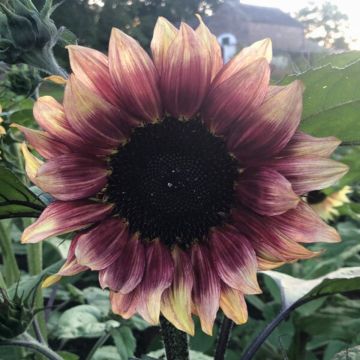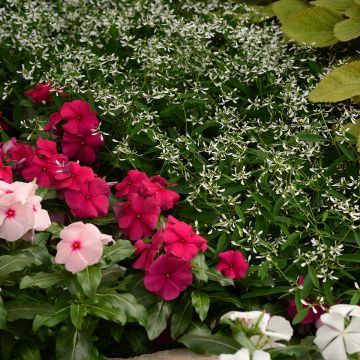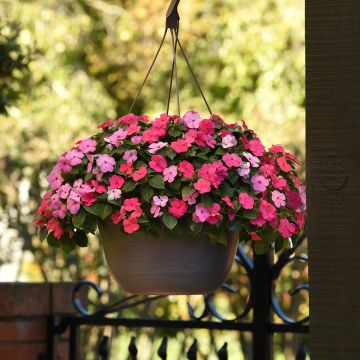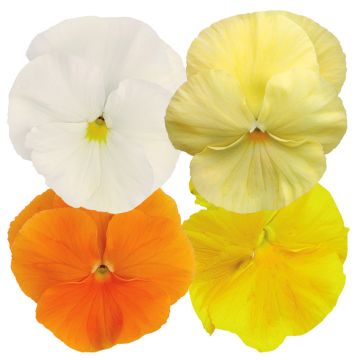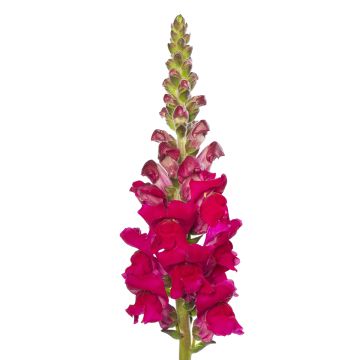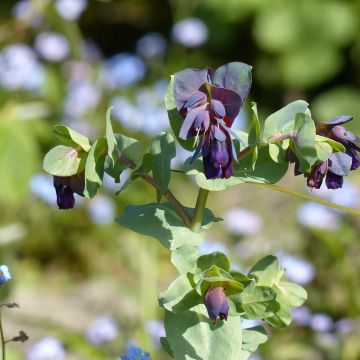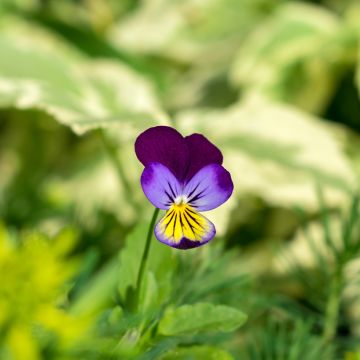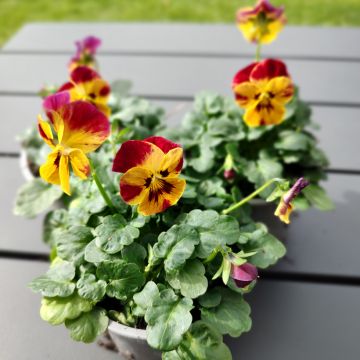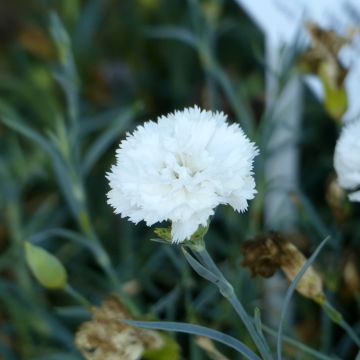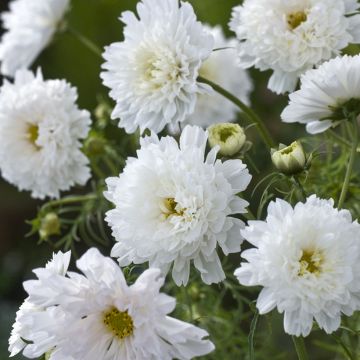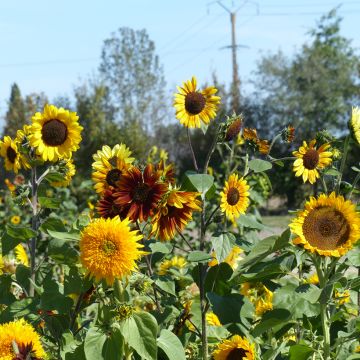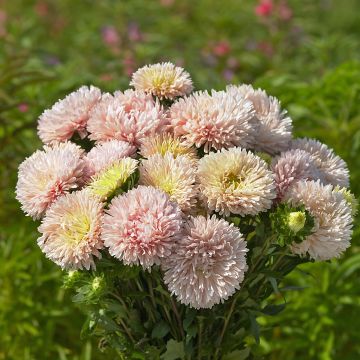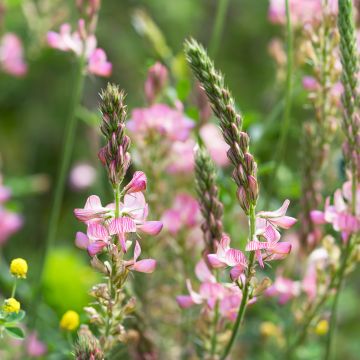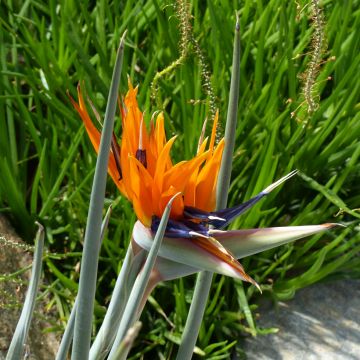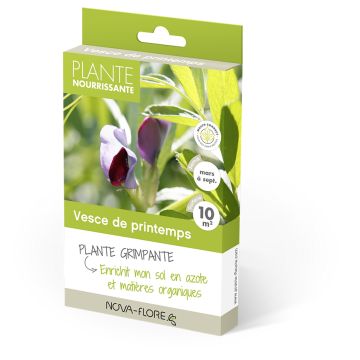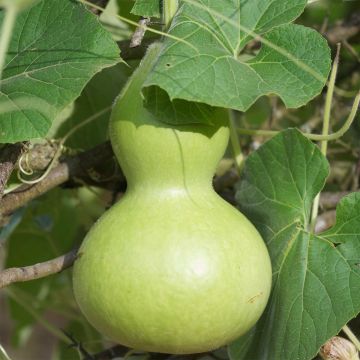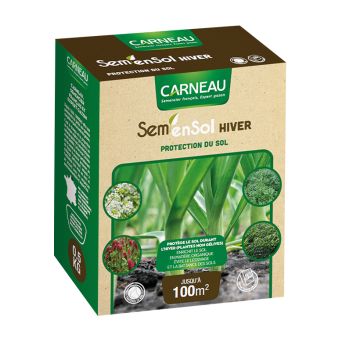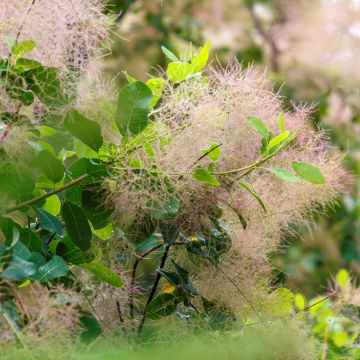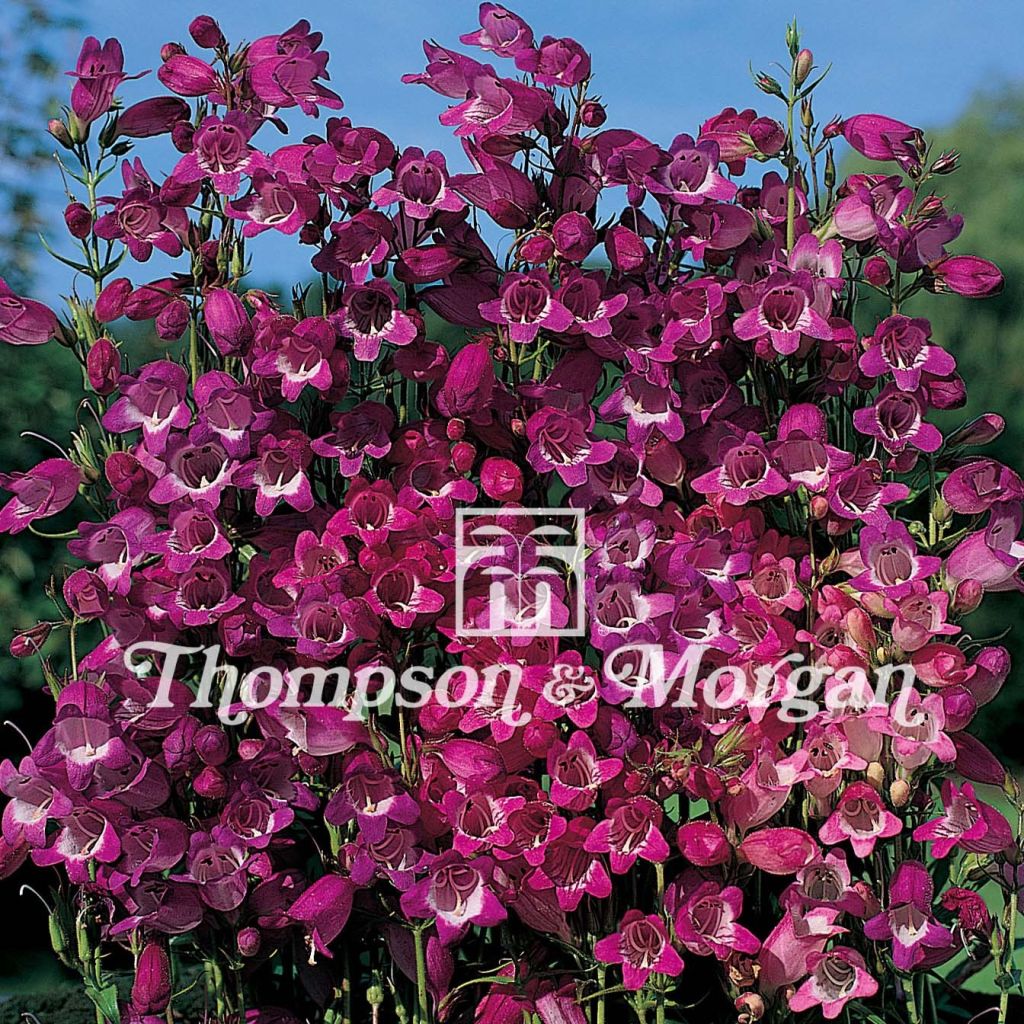

Penstemon Miniature Bells Seeds - Beardtongue
Penstemon Miniature Bells Seeds - Beardtongue
Penstemon x hybrida Miniature Bells mixed
Bellflower Beardtongue, Canterbury Bells Penstemon
Seed viability at 50%, young plant established in August.
Olivier T., 15/10/2020
Special offer!
Receive a €20 voucher for any order over €90 (excluding delivery costs, credit notes, and plastic-free options)!
1- Add your favorite plants to your cart.
2- Once you have reached €90, confirm your order (you can even choose the delivery date!).
3- As soon as your order is shipped, you will receive an email containing your voucher code, valid for 3 months (90 days).
Your voucher is unique and can only be used once, for any order with a minimum value of €20, excluding delivery costs.
Can be combined with other current offers, non-divisible and non-refundable.
Why not try an alternative variety in stock?
View all →This plant carries a 6 months recovery warranty
More information
We guarantee the quality of our plants for a full growing cycle, and will replace at our expense any plant that fails to recover under normal climatic and planting conditions.
Would this plant suit my garden?
Set up your Plantfit profile →
Description
Penstemons of the variety 'Miniature Bells' are compact, bushy and abundantly flowering hybrids that are perfect for brightening up sunny borders and window boxes throughout the summer. These pretty beardtongues have spikes loaded with small campanulate bells in shades of pink, mauve or purple, depending on the plant, which emerge from elegant bluish-green foliage. They are accommodating perennials that will thrive in any well-drained soil without excess limestone, in the sun.
Penstemon of the Mexicali group are horticultural hybrids, resulting from the cross-breeding between the semi-hardy Mexican species that displays large, very colourful flowers and the more robust and hardy North American species. These beardtongues combine the qualities of both parents and are rather easy to grow in our climates provided they are planted in soil that does not retain water excessively (especially in winter) and that they benefit from at least 6 hours of sunshine per day. They are fast growing and are capable of flowering within 24 months of sowing. The plants produced can self-seed freely in the garden, making it possible to grow them almost like biennials.
'Miniature Bells' groups together compact varieties, in shades ranging from pink to violet-purple. Each reaches an average height of 45 cm and width of 40 cm once fully grown. Its branched stems are covered with fine, lanceolate, bluish-green foliage. The flowering is abundant and lasts from June to October, appearing on the extremities of the leafy stems. They form small, campanulate, bells with 5 lobes. They are most often white at the throat and come in hues of fresh pink, magenta pink, lilac, mauve or dark purplish-pink, depending on the plant. Purple veins sometimes run from the base to the tip of the corolla. The blooms are much visited by butterflies and foraging insects.
Penstemon 'Miniature Bells' is useful in borders and in raised perennial beds, along with lily of the Nile, caryopteris, Rhodanthemum hosmariense, African daisies or mixed with annuals such as love-in-a-mist. It will mingle nicely between the stones of a rock garden (in soil that is not too chalky), with rosemary, lavender-cotton, rockrose or sagebrush. It also performs very well in pots, provided the medium is properly drained and fertilizer is applied on a regular basis. Penstemons also make very good cut flowers.
Report an error about the product description
Flowering
Foliage
Plant habit
Botanical data
Penstemon
x hybrida
Miniature Bells mixed
Scrophulariaceae (Plantaginaceae)
Bellflower Beardtongue, Canterbury Bells Penstemon
Cultivar or hybrid
Other Flower seeds A to Z
View all →Planting and care
Sowing:
Sow from February to April. Penstemon Miniature Bells seeds will usually germinate in 30 days but can sometimes take longer, up to 4 months. Normally they need light to germinate. Sow seeds 1 mm deep, in well-drained compost. Maintain at about 15°- 20° C, enclosed in a transparent plastic bag or in a mini greenhouse. Transplant the seedlings in 7.5 cm pots, when they are large enough to be handled. Grow them in a cooler environment for 10 to 15 days, before planting them out once all risk of frost has passed. Space the young plants 30 cm apart.
Cultivation:
The type and quality of the soil is crucial to the successful cultivation of penstemon. They appreciate rather rich, moist to dry soils that are very well-drained, especially in winter. They rot very quickly in soil that is too wet. In a cool climate, place the plants in a warm, sunny position, sheltered from cold winds (south or west facing). In hot climates, choose a cool, partially-shaded position. This penstemon hybrid can withstand frosts down to -15 °C but only if the soil is well-drained. In very cold and humid regions, it is advisable to take stem cuttings in autumn. It does not suffer from any specific diseases. This plant requires very little maintenance but when removing the spent flowers in the autumn, take care to shorten the faded stems slightly without cutting them down to ground level, especially in areas where winters are wet. Foliage plays an important role in moisture regulation. Wait until spring sets in (March-April) to shorten branches whose foliage has been damaged by the cold. If the summer is dry, water regularly to sustain flowering. In the coldest regions, cover the base of the plant with glass or a frame to protect it from the extreme cold. Divide your plants in spring, every three or four years to rejuvenate them.
Sowing period
Intended location
-
, onOrder confirmed
Reply from on Promesse de fleurs
Similar products
Haven't found what you were looking for?
Hardiness is the lowest winter temperature a plant can endure without suffering serious damage or even dying. However, hardiness is affected by location (a sheltered area, such as a patio), protection (winter cover) and soil type (hardiness is improved by well-drained soil).

Photo Sharing Terms & Conditions
In order to encourage gardeners to interact and share their experiences, Promesse de fleurs offers various media enabling content to be uploaded onto its Site - in particular via the ‘Photo sharing’ module.
The User agrees to refrain from:
- Posting any content that is illegal, prejudicial, insulting, racist, inciteful to hatred, revisionist, contrary to public decency, that infringes on privacy or on the privacy rights of third parties, in particular the publicity rights of persons and goods, intellectual property rights, or the right to privacy.
- Submitting content on behalf of a third party;
- Impersonate the identity of a third party and/or publish any personal information about a third party;
In general, the User undertakes to refrain from any unethical behaviour.
All Content (in particular text, comments, files, images, photos, videos, creative works, etc.), which may be subject to property or intellectual property rights, image or other private rights, shall remain the property of the User, subject to the limited rights granted by the terms of the licence granted by Promesse de fleurs as stated below. Users are at liberty to publish or not to publish such Content on the Site, notably via the ‘Photo Sharing’ facility, and accept that this Content shall be made public and freely accessible, notably on the Internet.
Users further acknowledge, undertake to have ,and guarantee that they hold all necessary rights and permissions to publish such material on the Site, in particular with regard to the legislation in force pertaining to any privacy, property, intellectual property, image, or contractual rights, or rights of any other nature. By publishing such Content on the Site, Users acknowledge accepting full liability as publishers of the Content within the meaning of the law, and grant Promesse de fleurs, free of charge, an inclusive, worldwide licence for the said Content for the entire duration of its publication, including all reproduction, representation, up/downloading, displaying, performing, transmission, and storage rights.
Users also grant permission for their name to be linked to the Content and accept that this link may not always be made available.
By engaging in posting material, Users consent to their Content becoming automatically accessible on the Internet, in particular on other sites and/or blogs and/or web pages of the Promesse de fleurs site, including in particular social pages and the Promesse de fleurs catalogue.
Users may secure the removal of entrusted content free of charge by issuing a simple request via our contact form.
The flowering period indicated on our website applies to countries and regions located in USDA zone 8 (France, the United Kingdom, Ireland, the Netherlands, etc.)
It will vary according to where you live:
- In zones 9 to 10 (Italy, Spain, Greece, etc.), flowering will occur about 2 to 4 weeks earlier.
- In zones 6 to 7 (Germany, Poland, Slovenia, and lower mountainous regions), flowering will be delayed by 2 to 3 weeks.
- In zone 5 (Central Europe, Scandinavia), blooming will be delayed by 3 to 5 weeks.
In temperate climates, pruning of spring-flowering shrubs (forsythia, spireas, etc.) should be done just after flowering.
Pruning of summer-flowering shrubs (Indian Lilac, Perovskia, etc.) can be done in winter or spring.
In cold regions as well as with frost-sensitive plants, avoid pruning too early when severe frosts may still occur.
The planting period indicated on our website applies to countries and regions located in USDA zone 8 (France, United Kingdom, Ireland, Netherlands).
It will vary according to where you live:
- In Mediterranean zones (Marseille, Madrid, Milan, etc.), autumn and winter are the best planting periods.
- In continental zones (Strasbourg, Munich, Vienna, etc.), delay planting by 2 to 3 weeks in spring and bring it forward by 2 to 4 weeks in autumn.
- In mountainous regions (the Alps, Pyrenees, Carpathians, etc.), it is best to plant in late spring (May-June) or late summer (August-September).
The harvesting period indicated on our website applies to countries and regions in USDA zone 8 (France, England, Ireland, the Netherlands).
In colder areas (Scandinavia, Poland, Austria...) fruit and vegetable harvests are likely to be delayed by 3-4 weeks.
In warmer areas (Italy, Spain, Greece, etc.), harvesting will probably take place earlier, depending on weather conditions.
The sowing periods indicated on our website apply to countries and regions within USDA Zone 8 (France, UK, Ireland, Netherlands).
In colder areas (Scandinavia, Poland, Austria...), delay any outdoor sowing by 3-4 weeks, or sow under glass.
In warmer climes (Italy, Spain, Greece, etc.), bring outdoor sowing forward by a few weeks.


































